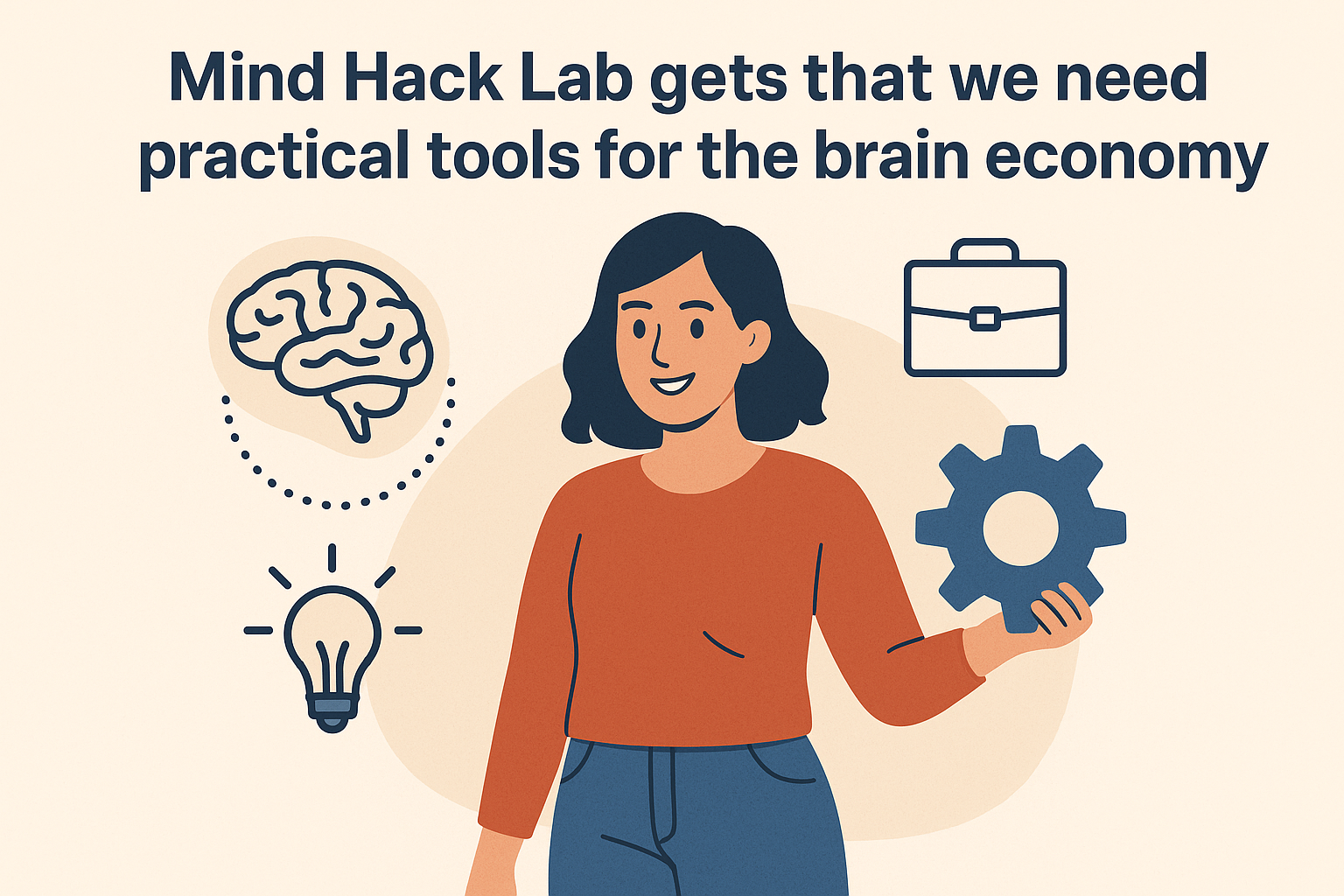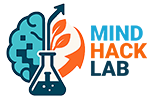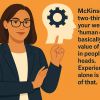
Why Your Brain Is the Most Valuable Asset You Own
(And Nobody Told You)
Last Tuesday at 10:47 a.m., I watched my colleague Sarah completely forget the word "revenue" mid-presentation. Conference Room B, twelve executives, lukewarm coffee getting cold. Just... gone. While she stood there twisting her purple Pilot G2 pen cap (I counted: 27 full rotations), my own brain decided to join the solidarity movement and forgot every business term I'd ever learned.
We both sat there, frozen, while our CFO checked his phone for the third time.
Here's what I didn't know then: according to the World Economic Forum's September 2024 Brain Economy report, there's a $5 trillion annual cost from brain disorders globally—expected to hit $16 trillion by 2030.
What finally stopped my voice shake
The World Economic Forum launched the "Brain Economy Action Forum" in January 2025. Not the knowledge economy. Not the digital economy. The actual functioning-of-your-brain economy.
Per their September 2024 report: half of all emerging job skills are brain-related—creativity, analytical thinking, emotional intelligence. We're not talking about knowing Python. We're talking about your actual neurons firing when quarterly results are on the line.
After I blanked in the Q3 pipeline review (Room B, 9:05 a.m., twelve people, iced coffee sweating through the napkin), I tested one thing: sternum pressure—thumb pad, 25 seconds, slow exhale. It didn't make me brilliant. It stopped the wobble. That was enough to finish the slide on churn.
Thing is, we're all Sarah now.
Your Brain Has a Price Tag (And It's in the McKinsey Report)
They call it "brain capital"—defined by Rice University's Neuro-Policy Program as "the economic output of positive brain health." Translation: whether your prefrontal cortex shows up when you need it.
Mine has the attendance record of a college senior in May. Specific failures from 2024:
- Forgot "Accenture" (my own employer) during the Chicago office partner pitch, July 18th
- Stared at the quarterly forecast email for 47 minutes straight, cursor blinking
- Voice went full vibrato during the compensation committee, even though I'd rehearsed 6 times
McKinsey Health Institute's April 2025 analysis says scaling mental health interventions could unlock $4.4 trillion in GDP by 2050. But honestly? I just want to say "synergistic value proposition" without my larynx staging a mutiny.
Why Your Meditation App Isn't Fixing This
I did the whole circuit. Headspace (127 consecutive days). Power poses in the executive bathroom. That 4-7-8 breathing everyone at Google swears by.
Three months of sunrise meditation, $89/month subscription. Still forgot "KPI" mid-sentence during the Wells Fargo meeting. (Not "synergy" this time—progress?)
The problem? Your amygdala is running Windows 95 while you're trying to execute 2025 strategies. No amount of whale sounds changes that biological fact.
The Parasternal Reset That Actually Works
After enough presentation meltdowns to fill a fail compilation, I started hunting for protocols that work when your sympathetic nervous system treats your VP like a grizzly.
Here's what Mind Hack Lab's Confidence & Calm Under Pressure module taught me: Parasternal (sternum) pressure reset. Sounds fake. Works anyway. Moderate pressure, 20-30 seconds, between second and third rib. Activates the vagus nerve, apparently. Don't care about the science. Care that it works.
For my 3:17 a.m. cortisol parties, the Rest & Recovery protocol had this thing called the Middle-of-the-Night Protocol. Bilateral tapping, specific sequence. Stopped me from mentally redrafting resignation letters at dawn.
The Emotional Mastery module? Finally stopped replaying that March 2019 all-hands where I called our CEO "Jason" (his name is James). The protocol: Memory Reconsolidation Interruption. Write the cringe moment, tap specific points, breathe in pattern. Stupid simple. Stupidly effective.
Turns out "just breathe" was missing about 47 steps.
Why AI Makes Your Brain More Valuable, Not Less
Plot twist nobody's discussing: The WEF's Brain Economy report explicitly warns that "AI may weaken critical thinking."
Great. ChatGPT writes the strategy deck. You still have to present it without your voice cracking like you're back in 7th grade.
It's having a Tesla on autopilot but forgetting how to merge. What good is an AI-generated SWOT analysis if you freeze when the board asks follow-ups?
Tuesday Morning Is Coming
Look, I'm not here to sell you on becoming some optimized brain athlete. I barely remember to take vitamins.
Mind Hack Lab taught me techniques with names like "If-Then Meeting Plan" and "2-Minute Reframe." No crystals. No "manifesting." Just 30-minute sessions with an AI that doesn't judge when you admit your biggest fear is small talk at the holiday party.
The protocols have clinical names because they're based on actual neuroscience. Boring names. Boring process. Exciting result: I got through last week's investor update without my voice doing the thing.
The Receipt
Your next big moment is scheduled. The board presentation. The client pitch. That meeting where you need your actual brain to show up, not just your body.
You can keep hoping biology cooperates. Or accept that in the Brain Economy—this real thing the WEF and G7 are now tracking—your neural pathways need actual tools.
The Gallup 2024 study found $8.8 trillion in lost productivity from disengagement. The Davos crowd now has "Brain House" sessions. Rice University launched a whole Neuro-Policy program.
But honestly? I'm just happy I remembered my company's name during yesterday's standup.
Ready to Stop Your Brain's Hostile Takeovers?
Start with whatever ruins your Tuesdays most. Presentation panic. Sunday dread. The 3 a.m. catastrophe cinema.
P.S. Yes, brain capital is real. WEF launched the Brain Economy Action Forum in January 2025, the European Brain Council presented at Davos 2025, and McKinsey Health Institute published that every dollar invested in brain health interventions returns $5-6 in GDP. I have the PDFs. But honestly? I'm just glad I can remember "revenue" when it counts.








